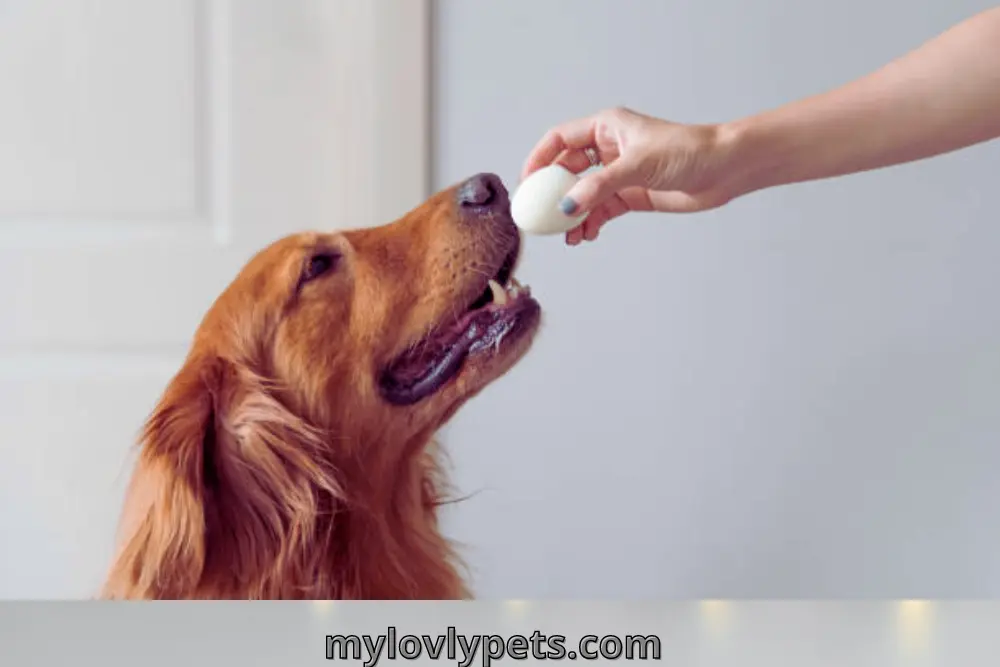
Can Dog Eat Eggshells? Read Before You Feed
Can dogs eat eggshells as a regular part of a healthy diet? We know that eggs are good for us, containing many essential nutrients, but what about the shells?
In the wild, dogs are scavengers and will eat eggs as a nutritious snack if they come across them. Domestic dogs are no different and can happily crunch on shells to get to the tasty egg within. We might be wondering if there are any potential risks or health benefits to eating eggshells.
In this article explores can dog eat eggshells safely, how much is okay, and when it’s best to avoid them.
Can My Dog Eat Eggshells?
Whether your dog finds eggshells on its own or you want to give your canine companion a calcium boost, you may be wondering if it’s okay for dogs to eat them.
Yes, it is. Eggshells are edible for dogs, but it’s best to prepare them first. Egg shells are safe for most dogs to eat in small amounts, but too many can cause nutritional imbalances.
Some dogs may be allergic to egg shells or the eggs within them, so it’s important to check with a veterinarian before introducing them into your dog’s diet. If your dog has arthritis or your veterinarian approves, eggshells and eggshell membranes can be a great, healthy part of their regular diet.
Are Eggshells Safe for Dogs?
Eggshells are safe for dogs to eat, as they are not toxic, and most dogs can crunch them easily. However, some smaller breeds and puppies may struggle with large pieces of shell. Cooked eggs are the safest, as there is a small risk of infection if eggs are eaten raw.
The most common bacterial infection that can be caught from eating raw eggs and their shells is Salmonella bacteria. Animals that are very young, old, or have a compromised immune system may be more likely to show signs of disease themselves.
Are Eggshells Good for Dogs?
Eggshells can be good for dogs if fed in moderation. It is never advisable to feed eggs or their shells in bulk, as this can lead to nutrient imbalances or digestive upset. As an occasional treat, eggshells can provide a nutritional boost on top of their daily rations. Eggshells should make up no more than 10% of their pet’s daily food rations.
Growing puppies and pregnant or nursing dogs have special calcium needs. By feeding your dog eggshells, you can supplement his calcium intake.
Eggshells are made up of calcium carbonate, which is essential for the growth and repair of teeth, bones, and cartilage. They also contain the minerals phosphorus, strontium, fluoride, magnesium, and selenium, aiding bone health. Protein is also contained in eggshells, but it is negligible.
When are Eggshells Bad for Dogs?
Eggshells are a good source of protein for dogs, but there is a risk of bacterial contamination when eating them.
Infected dogs can also pass the bacteria onto their owners, so there is still a risk to your own health if your pet eats raw eggs and you don’t. Centers for Disease Control and Prevention (CDC) recommend certain measures to decrease the risk of bacterial issues, such as throwing out any cracked or dirty eggs, buying eggs from reputable suppliers that keep eggs refrigerated, storing eggs in the refrigerator, and cooking eggs (and their shells) before serving them to your pet.
If your dog eats excessive amounts of eggshells, then he could be at risk of calcium overdose.
Choking is a rare risk of eating eggshells, but it is most likely to occur in puppies, small breeds, or brachycephalic (flat-faced) dogs that have been fed large pieces of shell. You can avoid this by crushing it into small pieces or by grinding it up into a powder, which can be mixed into your pet’s food.
Should I Call the Vet If My Dog Eats Eggshells?

When your dog eats eggshells, it is usually not necessary to call your veterinarian as the risk of Salmonella infection is low in an otherwise healthy dog. However, if your dog shows possible signs of infection with Salmonella, you should call your vet for advice.
Symptoms may include diarrhea, vomiting, fever, abdominal pain, reduced appetite, weight loss, and lethargy. Your vet will start by examining your dog and may recommend some tests to try and determine the cause of your pet’s ill health.
Are Eggshells Good for Dog’s Bones?
Eggshell membrane components offer anti-inflammatory and joint-protective qualities, according to certain research. Eggshells are a good source of calcium, which is good for dog bones and teeth. However, too much calcium can be harmful, especially for developing puppies. Before making any changes to your dog’s food, consult with your vet.
Can Dogs Safely Eat Eggshells from Other Poultry?
Salmonella is not limited to chicken eggs; it can also be found in eggs from ducks and quails. Therefore, the same rules are relevant. In order to prevent nutritional imbalances or stomach disturbances, these eggs should be served cooked and given to your pet in moderation.
Can Dogs Eat Eggshell Membrane?
The eggshell membrane is the layer between the shell and the egg white. It has two membranes – the inner and outer – that protect the inside of the egg from external bacteria. Daily egg shell membrane supplements can reduce joint pain and improve joint mobility, increasing a dog’s quality of life.
Can Dog Eat Eggshells Raw?
The primary concern with raw eggs for most owners is salmonella bacteria. Salmonella infection is uncommon in dogs, but it can still be spread through food. Signs of salmonella infection in dogs include diarrhea, vomiting, loss of appetite, and lowered activity levels.
If concerned about salmonella, you can speak to your vet about other ways to offer your dog calcium, like powder supplements.
Also Read:
Can I Feed My Dog Raw Meat from the Supermarket?
Is Tuna Fish Good for Dogs? Benefits of Tuna for Dogs
How Many Egg Shells Can a Dog Eat in a Day?
Eggshells are a good source of calcium for dogs and can help to improve their overall health. While there is no definitive answer, it is generally safe to say that a dog can eat up to three eggshells per day.
However, if you feed too many calories to your dog, it may develop nutritional imbalances. Small eggshell pieces can be sharp and scratch your dog’s throat, and certain dogs may be allergic to egg shells. To add calcium to your dog’s diet, make sure to use powdered eggshells and one-half teaspoon of ground eggshell should be added to each 10-pound dog’s meal.
Can Dogs Eat Eggshells Every day?
Dogs should not be given eggs as a treat due to their high concentration of calcium carbonate, which is extremely calcium-rich and highly digestible. However, eggs are a great source of nutrition for dogs and are a great source of fiber.
Remember the 10 percent treat rule when it comes to feeding your dog eggs every day, as this will reduce their calorie intake and increase their risk of obesity.
Eggshells for Dogs with Kidney Failure
Most dogs with renal, liver, or stone/crystal problems need less calcium and a different calcium to phosphorus ratio. We recommend ground eggshells as a source of calcium for these diets. The calcium/phosphorus ratio in eggshell is optimal for most canines with kidney/liver dysfunction or stones/crystals. Unless otherwise instructed by your veterinarian, ground eggshell must be added.
Washing eggshells and baking them at 300°F for ten minutes in a preheated oven makes it simple to produce eggshell powder. Using a coffee grinder or a rolling pin, pulverize the eggshells to a fine powder. The powder can be stored for up to one month in a cool dry area in an airtight container.
How Should I Give My Dog Eggshells?

You can give your dog raw or cooked eggshells, but make sure that the shell is broken into very small pieces.
It is also a good idea to mix eggshells in with the rest of your dog’s food to help protect them from some of the sharp edges. If you are concerned about the sharp edges of eggshells, you can grind them into a powder and then sprinkle it on top of your dog’s food.
Can dogs eat egg white or yolk?
Yes, dogs can eat egg white and yolk. The egg yolk is rich in nutrients and healthful fats. Some people are worried about avidin in eggs because it makes it harder to absorb biotin, which is an important B vitamin. But egg yolks are a good source of biotin, so you can feed your dog a raw egg every day if you feed it a whole egg.


